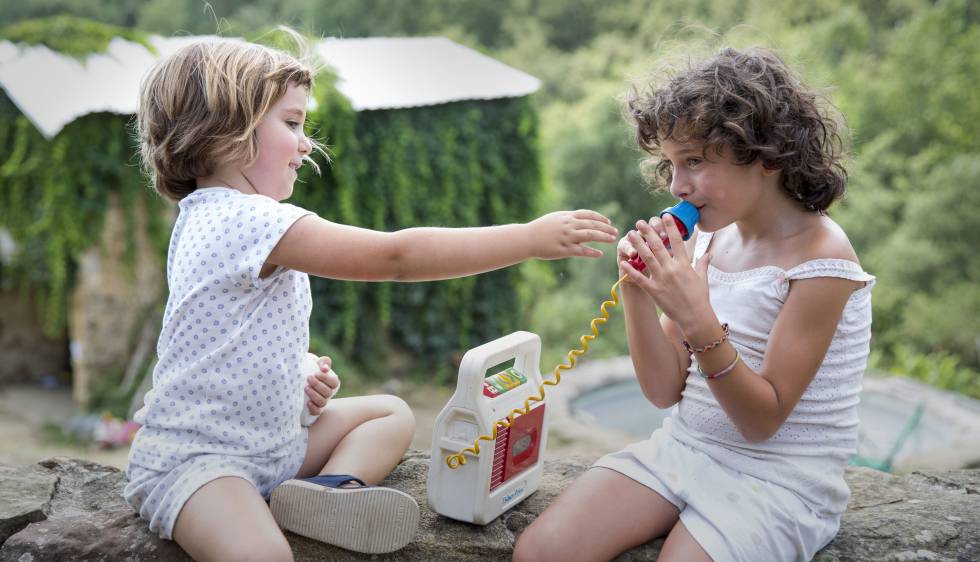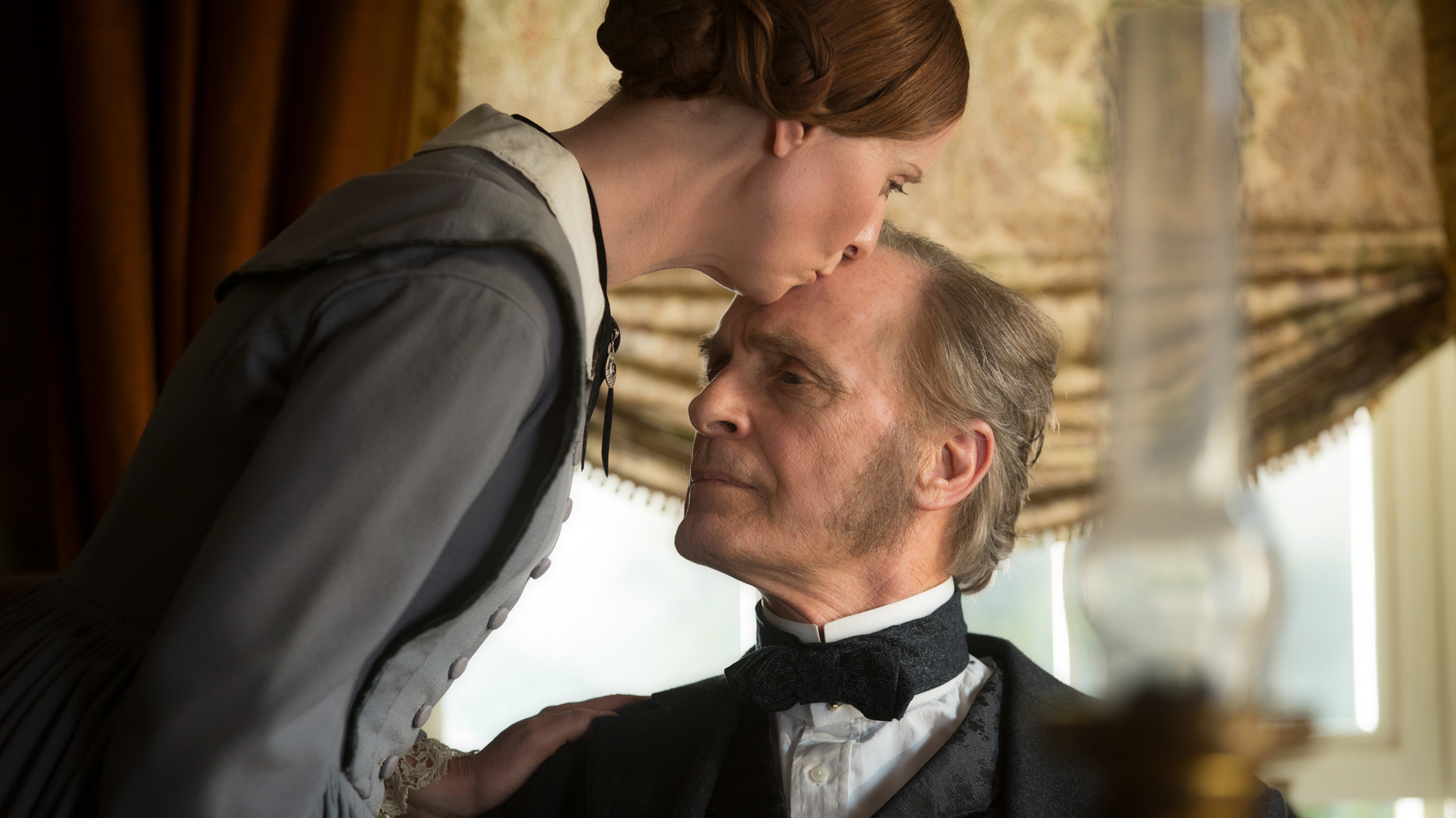I was only able to cover one film festival - Transatlantyk Festival here in Łódź - in 2017, but nonetheless managed to see a pretty good range of films from all over the world throughout the year: one of the benefits of living in a cinephile's city. Hollywood mainly disappointed or disgusted (on screen and off), but elsewhere there was much to celebrate and to be inspired by. There were some great communal experiences - the shared laughter at Lost in Paris, the shared shock and awe at mother! - but, most of all, 2017's films felt like very private and interior experiences to me, making spaces for reflection that I'm truly grateful for, especially in the current climate. In no particular order, here are fifteen of my favourites of the year (plus extras, disappointments and non-favourites).
A Ciambra (dir. Jonas Carpignano)
Jonas
Carpignano's debut feature Mediterranea (2015) was an intimate drama of contemporary immigration experience that combined the humanism of a Vittorio De Sica with the rough sensuality of a Claire Denis. Produced by Scorsese, A Ciambra is a superb semi-sequel that switches the spotlight to Mediterranea's precocious
tearaway (Pio Amato) as he comes of age in the Romani community of Gioia Tauro and faces difficult choices of allegiance.
Frantz (dir. François Ozon)
L’amant double (dir. François Ozon)
I'd started
to give up on Ozon after several lacklustre efforts (Young and Beautiful and The New Girlfriend, ugh). But Frantz
and L’amant double constituted a
terrific return to form that neatly encapsulated the two sides of the
director’s sensibility: elegant, earnest classicism, on the one hand, and trashy, sexy cheek,
on the other. The films were linked by twisty, but brilliantly lucid, cinematic
story-telling, fine performances, and freshly subversive takes on that habitual
Ozon theme: the possibility (or otherwise) of substitution and replacement.
Lost in Paris (dir. Fiona Gordon and Dominique Abel)
The only
film I saw this year that made me weep with laughter, this joyous comedy of City
of Lights misadventures serves up some blissful Tatiesque slapstick as it brings
together a meek (yet increasingly intrepid) Canadian librarian and a cheerful vagabond in
the search for an errant Aunt. With Emmanuelle Riva belatedly proving herself a
comedy virtuosa in one of her last screen roles.
God’s Own Country (dir. Francis Lee)
Francis Lee makes
a beautiful debut film here, charting the love affair between an unhappy young
Yorkshireman (Josh O’Connor) and the watchful Romanian migrant worker (Alec
Secareanu) who’s hired to help out on the former’s farm. The pair’s progression from hostility to tenderness is poignantly and perceptively charted, creating a love story of contrasting personalities
to rival Weekend (2011) as well as another fine entry into the growing canon of
contemporary British rural dramas. O'Connor and Secareanu are terrific, and there's subtly amazing supporting work from Gemma
Jones and Ian Hart; in fact, I'd put this in
a double-bill with Tom Browne's Radiator (2014), another great Jones-starrer, that's also among the best British films of the last few years.
A Ghost Story (dir. David Lowery)
Rooney Mara
is a vacuum, Casey Affleck’s more expressive with the sheet over his head than
without it, and the whole thing starts out like an arch hipster take on Truly Madly Deeply. Yet A Ghost Story reveals grander, weirder
designs as it progresses, and I gradually found myself captivated and deeply moved by the odd rhythms and juxtapositions of this singular odyssey
through time and space.
Maudie (dir. Aisling Walsh)
“The whole
of life, already framed, right there.” A superb performance from Sally Hawkins is
the centrepiece of Walsh’s lovely, low-key biopic of the Canadian “primitive”
artist Maud Lewis. As much as a
portrait of the artist, the film is a portrait of a relationship, and one that
doesn’t shy away from difficult, complicated emotions. To that end, Hawkins is
ably supported by Ethan Hawke as the uncommunicative grump of a spouse whose worldview (not to
mention windows and walls) is gradually changed by his wife’s spontaneous
artistry.
mother! (dir. Darren Aronofsky)
“Baby…?” From
domestic unease to full-scale apocalyptic vision, Darren Aronofsky’s latest was
by turns chilling, ludicrous and powerful: a delicious slow-burn turned orgy of
excess that has a lot on its mind - including creativity, the insanity of celeb culture, spatial transgression and
gender roles - as it reveals the allegorical implications at the heart of the
house. Richard Brody puts it best in his fine review.
Manifesto (dir. Julian Rosefeldt)
Strange Little Girls Goes to the Movies, as Cate
Blanchett slips into thirteen personas to deliver a range of manifestos in settings that are occasionally
complementary but mostly delightfully incongruous. Dada
ignites a fierce graveside eulogy while
Claes Oldenburg’s “I am for an art…” provides
the basis for a conservative family’s
prayer; in the final section, the focus turns, beautifully, to film, as a
teacher offers a lesson that veers from Brakhage to Dogme. What sounds like an
exercise in pretension proves to be a surprisingly funny, enjoyable, humane and dramatic
as well as a challenging experience, with
Blanchett using the mannerism that’s come to define some of her screen performances
to best effect (and with a dose or two of self-parody), as she creates some
indelible presences. “I am for an art…”
well, rather like this one, as it turns out.

Summer 1993 (dir. Carla Simón)
A beautiful Catalonian
film that captures the contours of a grief that’s barely been comprehended, let
alone assimilated, Simón's movie charts the struggles of the orphaned Frida (Laia Artigas) to settle
into living with her Aunt and Uncle following her mother’s death from
AIDS-related pneumonia. Alert to the rhythms of childish play and the casual
cruelty that can underpin it, Simón has made a deeply personal film based on
her own experience, but one that never feels self-indulgent or that locks the
viewer out. The handling of the child actors is beyond praise, with Artigas and
Paula Robles (as her little cousin Anna) creating a girlhood double act to
rival those in Carlos Saura’s Cria Cuervos
(1975), Victor Erice’s The Spirit of the Beehive (1973) (a
clear intertext for the film), and Dorota Kędzierzawska’s Crows
(1994).
Chavela (dir. Gund and Kyi)
Working against the popular doomed-female-artist mode of Asif Kapadia’s Amy
(2015) and Nick Broomfield’s Whitney: Can
I Be Me? (2017), Gund and Kyi’s doc Chavela
is a triumphant rejoinder that, without sanctifying its subject, offers a loving tribute to the iconic singer who
shook up Mexican music with her extraordinary voice and challenging persona. In
a film that elegantly combines interviews with footage of the singer’s intense performances, Pedro Almodóvar puts it
best, as he describes seeing Vargas perform live: “She was like a priestess: she saw that you’d made mistakes in love, and she saw
your deep torments. You felt that she’d absolved you of your sins - and then encouraged
you to commit them again.”
My Happy Family (dir. Nana Ekvtimishvili and Simon Gross)
A 50-something teacher leaves her troublesome family and moves into a modest Tbilisi apartment by herself. That action yields funny, painful and surprising results in Nana Ekvtimishvili and Simon Gross's perfectly picthed drama, which deals with the always-challenging negotiation between our own desires and the demands or expectations of others.
A Quiet Passion (dir.
Terence Davies)
Not without some awkwardness - the Wildean pastiche of the opening scenes is
a little much - Davies’s portrait of Emily
Dickinson deepens as it progresses, creating a film that ends up as strange and single-minded as its
subject. And after her amazing work as the dying matriarch in Josh Mond's James White, here's another transcendent
performance from Cynthia Nixon.
Insyriated (dir.
Philippe Van Leeuw)
From A Ghost
Story to A Quiet Passion, mother! to Maudie, expressive use of
domestic space distinguished many 2017 films that I liked,
none more so than Philipe van Leeuw’s distilled and intense drama that
documented 24 hours in the life of a
Syrian family (and neighbours) holed up in their home during a siege in Damascus.
Little Men (dir.
Ira Sachs)
Though a 2016 release, I can’t not
include Ira Sachs’s superb drama, which I was able to see for the first time this year, and which was among the films that affected me most profoundly. Shot in the same bright, airy, welcoming style as Love is Strange, to which it forms a clear companion piece, this portrait of a teen friendship tested by real estate market forces was quiet, observant and compassionate towards all its characters. (Imagine if Ken Loach had taken on similar material...)
Bonus: Pokot (Holland), The Bekscinkis:
A Sound and Picture Album (Borchardt), Centaur (Kubat), Dunkirk (Nolan), The
Sense of an Ending (Batra), Paris
Can Wait (Coppola), The Eagle Huntress (Bell), Tehran Taboo
(Soozandeh), It Comes at Night (Shults),
The Lost City of Z (Gray), Heal the Living (Quillevere), La Familia (Rondón
Córdova), Wonder Wheel (Allen), Their Finest (Scherfig), Lady Macbeth (Oldroyd), Waiting for B. (Toledo/Spindel).
Favourite DVD Reissues: Daughters
of the Dust (Dash), Life is Sweet
(Leigh).
Disappointed: The
Square (Östlund), Call Me By Your
Name (Guadagnino), The Florida Project (Baker), The Party (Potter), I Am Not Your Negro (Peck), Get Out (Peele) (On the latter, God bless you, Armond White).
Worst: Wind River (Sheridan), Let the Sunshine In (Denis), Song to Song (Malick), Return to Montauk (Schlondorff), Aurore
(Blandine Lenoir).
Still Unseen: Human Flow, Faces Places, Phantom Thread.




























